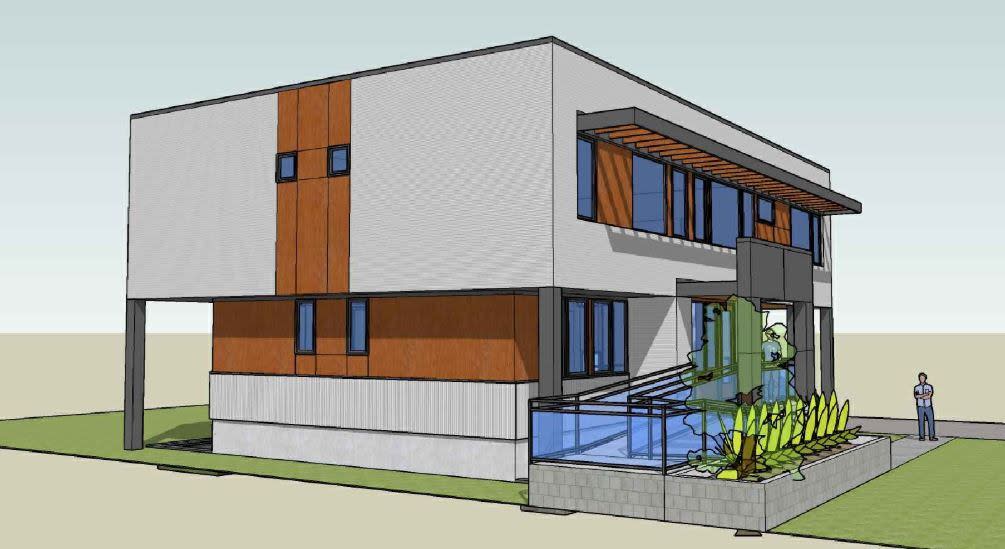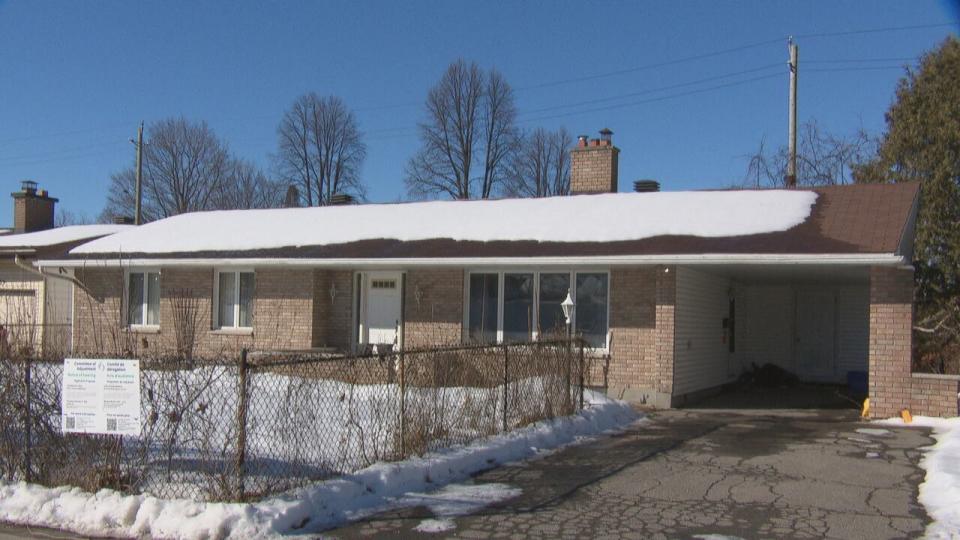Proposed rooming house discord near Algonquin College a sign of things to come

A rooming house proposed near Algonquin College in Ottawa brought angry neighbours to an obscure city committee meeting on Tuesday, as early ripples from a planning sea change begin to make themselves felt.
The developer behind the two-storey project at 2335 Baseline Rd., came to Panel 2 of the city's committee of adjustment asking to increase the number of permitted rooms from seven to 12. He also asked for just one parking space, instead of the three that would otherwise be required.
Erin O'Connell, a senior planner with the city, told the committee the zoning bylaw is "outdated." She said the seven-room number was chosen years ago and is no longer consistent with current policy.
A small group of residents sat through the hours-long meeting in audible frustration — before three came forward to air grievances about how that policy fits with their low-rise community.
Jason Walton worried that perhaps two dozen people might cram into the rooms, which were described as "quite generous" in their dimensions. He said the single parking space is completely inadequate to accommodate such a number.
Mark Craig said he's noticed other rooming houses beginning to "pop up" nearby. He pointed to parties and garbage to argue that they've changed the neighbourhood for the worse.
"We want to keep our neighbourhood the way it is," he said, before addressing the developer. "It's a business for them. These are our homes."
'I don't want to see more of it'
Ted Long said he lives right behind a neighbouring rooming house.
He said the grass is a jungle full of garbage, raccoons and other wildlife. He called it "disgusting" and "unbearable."
"It's destroying neighbourhoods where people are trying to raise their children," said Long. "I don't want to see more of it."
But it seems highly likely that Long will see more of them around Algonquin College and elsewhere. The city's current zoning bylaw would allow a seven-unit rooming house on the site, but it limits them in many other lower density zones.
That will soon change.
The city's top planning document already foresees allowing them on every residential lot across the city, and the draft zoning bylaw now going through public consultation must comply with it. The city confirmed on Tuesday that it contains the same broad permissions.
Jacob Bolduc of Fotenn, the developer's agent, directly cited that policy change to argue for the Baseline Road project. He said rooming houses allow low-income people with few other options, like students, an affordable and flexible place to live.
"They are renting their own room and controlling their own destiny," he said.
Bolduc said rooming houses are consistent with the city's push to allow more housing options, especially along major transit corridors like Baseline Road, which is slated to get a bus-rapid transit line sometime in the indefinite future.
He noted that the province stepped in to force cities to allow triplexes on every residential lot. Each of those could have four bedrooms, so Bolduc asked why a 12-unit rooming house should be treated any differently.
The developer, Jacques Hamel, ran through the proposal in detail. It would mainly use the existing foundation of the bungalow now on the site, though the second floor would hang over into the backyard.

The bungalow on the site of a proposed rooming house. That rooming house would use much of the bungalow's foundation. (Vincent Trottier/CBC)
Each room would have a bathroom, and there would be kitchens in the basement and on the first floor. The project would have garbage storage and parking for six bicycles.
"The compact form is in keeping with the character of the neighbourhood," he said.
He called it "human scale" and said it would afford a "high quality of life" for a wide range of residents.
City planning staff said they had no concerns about the application.
Draft zoning bylaw still has limits
In a written statement, the city's program manager of zoning and intensification, Carol Ruddy, said the city recognizes that people who don't form part of a household may rely on non-traditional housing types, such as rooming houses.
But she said there will still be restrictions on rooming houses.
According to the draft zoning bylaw, no single building could have more than one rooming house. In the lowest density zone, a maximum of eight bedrooms would be allowed in a rooming house, though higher density areas could have more.
The draft also intends to completely remove minimum parking rules — like the one that would ordinarily require three parking spots for the Baseline Road project — except in the case of accessible and visitor parking for certain projects.
Bolduc said he understands concerns about how the neighbourhood around the project is changing, but he said the alternative might be an even taller, denser building that the new zoning bylaw will likely allow on a major street like Baseline Road.
He said that would only bring more units and more garbage.
"The foundation of urban planning is managing change," he said. "The purpose of this application is trying to find that happy medium."
The committee of adjustment panel that heard the application reserved its decision, and committed to providing an answer within 10 days.

